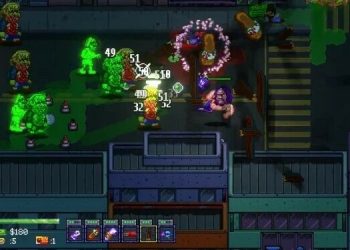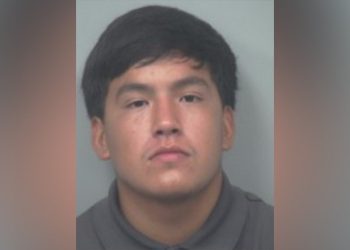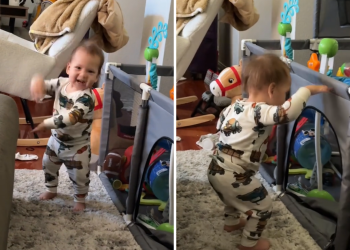Yehya Qasem was having dinner with his family one evening in early October when the unmistakable sound of Israeli airstrikes pierced the air. The series of so-called firebelts were so deafening that his mom and siblings froze in fear, forsaking their meal of canned chickpeas.
Qasem peered out the window to see what was going on. His family worried that Israeli troops would enter their town of Jabalia that night. Trying to calm them down, he countered, “There’s nothing left for them to enter.”
Since Israel had launched its assault on Gaza a year earlier, the army had twice invaded Jabalia. “What’s left for them to destroy?” he recounted in a recent interview, an Israeli quadcopter’s strikes audible in the background.
Qasem’s family, it turns out, was right. That night marked the start of Israel’s scorched-earth assault on northern Gaza — the so-called General’s Plan to purportedly combat Hamas while clearing the area of its residents.
Tens of families immediately fled Jabalia. “People were running barefoot, with clear horrors on their faces,” Qasem, who is 28 years old, told The Intercept.
His family stayed put at first, but as the days passed and the bombing grew stronger, his disabled brother, mother, and sisters went to a relative’s house in Gaza City, nearly 3 miles to the south of their hometown. They had already lost one family member, Qasem’s twin brother, back in April. Yet Qasem chose to remain.
Since October 6, the Israeli army has paired its ground offensive with a nearly impenetrable siege and constant airstrikes — effectively starving the population while making it impossible for rescue teams and health care workers to do their jobs. While more than half of the area’s 200,000 remaining residents have fled since October, 65,000 to 75,000 people remain in the north, according to UNRWA.
“The implementation of the so-called General’s Plan, and all the Israeli army’s actions in northern Gaza, constitute war crimes and crimes against humanity,” said Yehya Muharab, an international law attorney. “These include grave violations of legal and humanitarian protections for civilians, hospitals, shelters, and vulnerable populations such as women and children.”
The Israeli military has killed at least 1,800 Palestinians in its ongoing assault on the north, said Mahmoud Basal, a spokesperson for Gaza’s Civil Defense. On October 23, Basal said, an Israeli army drone played an audio message ordering rescue teams to evacuate the area — leaving an untold number of people trapped under the rubble or on streets that civil defense crews cannot reach.
“We were instructed to stop responding to appeals from residents, cease practicing our profession, and even refrain from driving our vehicles,” Basal said. The military directed the rescue workers to evacuate through the Indonesian Hospital, where soldiers arrested nine workers. After halting its rescue operations, the civil defense has “received a lot of appeals from residents blockaded in the north to send them food and water. It’s a very miserable disaster.”
The area’s two remaining hospitals — Kamal Adwan and Al-Awda — have meanwhile struggled amid Israeli bombings and the military’s refusal to allow the delivery of medical supplies and fuel.
“We don’t even have a single ambulance to transport the injured from disaster sites.”
“We don’t even have a single ambulance to transport the injured from disaster sites,” Dr. Hussam Abu Safiya, director of Kamal Adwan Hospital, told The Intercept. He recounted getting distress calls from people trapped under the rubble and being unable to dispatch emergency workers to help them. “The next day, their voices were gone, and they were counted among the dead, with their homes becoming their graves. This scene is repeated daily.”
The hospital’s patients — children and adults alike — are suffering from malnutrition and dehydration, the doctor added, due to Israel’s siege. “Every hour, we lose patients due to these severe conditions.”
Abu Safiya himself was injured in an Israeli bombing on Kamal Adwan Hospital on November 24. This past weekend, Abu Safiya reported that the Israeli military had once again struck the hospital. He refuses to leave his post, determined to continue caring for those who remain.
Whether they fled or stayed behind, the survivors of Israel’s ongoing assault in the north have seen their lives indelibly shaped by fresh traumas compounding a full year of horrors.

Photo: Ahmed Dremly
Family Separation
Amal Almasri’s entire pregnancy was defined by Israel’s assault on Gaza. Even after her house in Beit Hanoun was bombed in the first week of the war, and as relatives started moving to the south, her family defied Israel’s evacuation orders, moving between temporary shelters instead. When she found out she was three months pregnant in March, they had already spent several months sheltering at various schools in the north, life in a house of their own a distant memory.
The war raging around them made it almost impossible for Almasri to seek regular prenatal care, let alone to get the nutrients she needed to care for herself and the child growing inside of her. “I only met a doctor once every four months,” the 30-year-old mother of five told The Intercept. “It was severe starvation, no hygiene, and sewage flooding the streets. We relied on food aid. Sometimes we only ate every other day.”
After multiple false starts, she went into labor on October 3 — amid a period of intensified Israeli bombing that was a a precursor to the General’s Plan.
“My face was pale due to malnutrition,” she recalled. She was accompanied at the hospital by a friend, while her husband, Yousef Almasri, stayed behind at the school shelter to be with their other children. The morning after giving birth, Amal Almasri returned to the school herself.
Their newborn baby was healthy, but the mother was physically drained. The couple had been expecting a son, and when they were surprised with a baby girl, they were unsure what to name her.
The next day, the Israeli army began heavily bombing the area once again, as soldiers launched a ground invasion and besieged four schools housing displaced people. This continued for three days; on the fourth, the army rounded all the Palestinians up in a single school — the one the Almasris were at — before ordering them to leave the area.
The troops separated the men and women. Almasri moved slowly, hoping to be able to leave with Yousef, but the army threw a stun grenade into the building, then forced the women and children to evacuate.
“I went out and I saw about 30 men tied up,” Almasri said. “There was a large hole where [the Israeli army] had tied the men’s arms behind their backs and blindfolded them. [My daughter] shouted, ‘Mama, there’s Baba.’ I saw him, but I couldn’t wave to him. A soldier yelled at me to lower my hand, so I lowered my hand.”
Her 10-year-old daughter tried to get near her dad. “My daughter Handa left the checkpoint,” Almasri said. “She wanted to go to her dad but the soldier raised his gun and said, “Go back!”
The girl came back crying.
The soldiers instructed the women and children to evacuate south. Exhausted from childbirth, Almasri had no choice but to leave without her husband.
“I was so fatigued, as I had just given birth four days ago. I lost hope and had to evacuate without Yousef,” Almasri said. Her children were distraught, too. “Handa was carrying her 4-year-old brother, crying and saying, ‘We left Baba behind us.’ I tried to reassure her, promising she would see him soon. Handa suddenly collapsed under a tree, saying, ‘Mama, I’m tired. I can’t bear it. The road is so long. I want to wait for Baba.’ But we had to keep going.”
After a few hours, they arrived at another school in Gaza City, where they spent the night in freezing weather without blankets. Over the next few days, Almasri repeatedly tried to contact men who had been with her husband, but to no avail. On the fourth day, she received a call telling her that Yousef had been injured and was in Al-Ahli Hospital in Gaza City.
“I didn’t believe he was alive until Yousef called me. Most of the arrested men were killed by Israel,” Almasri said.
Later, they reunited in the school.
“They used my husband as a human shield.”
“They used my husband as a human shield,” she said, referring to the Israeli military. After shooting him in the leg, the soldiers forced him to walk in front of them during their invasion of schools and other places. “The army gave him some evacuation orders to deliver to Kalam Adwan Hospital. He did and escaped with people.”
After his release, the couple decided on a name for their daughter: Somod, which means resilience.

Photo: Ahmed Dremly
The Final Prayer
During the first year of the war and despite five bouts of displacement, Ramez Abu Nasser and his family stood their ground in northern Gaza. But as Israel’s attacks intensified this fall, they decided on October 5 that it had become too dangerous to stay.
They were lucky to find an apartment in a relative’s four-story building in Gaza City.
A week later, they prayed together before going to bed, as they always did. It was the last time they would do so.
“I woke up at 2 a.m., covered by rubble. I opened my eyes and saw fire everywhere, so I closed them again,” Abu Nasser told The Intercept. In that moment, he conjured the Muslim declaration of faith. “I started reciting the shahada.”
An Israeli airstrike had hit their building without warning. The family was trapped under the rubble.
“I managed to pull out myself and my 11-year-old brother, Adam, from the rubble. My younger brother, 15-year-old Rajab, was immediately killed and trapped beneath rubble,” he recounted. “My other brother, 20-year-old Hatem, was also trapped. I was digging with my hands, begging him to hold on. His muffled cries and screams shattered my heart.”
Abu Nasser was also looking for his parents.
“I heard them yelling, ‘Get us out, we’re suffocating.’ I couldn’t do anything. They were under at least a meter of rubble.”
“I remembered my mom and dad were in another room. I exited the house through a small opening in the wall, and entered through a window into my parents’ room,” he recalled. “I heard them yelling, ‘Get us out, we’re suffocating.’ I couldn’t do anything. They were under at least a meter of rubble.”
His 28-year-old brother Fady, who hadn’t been at the apartment, rushed back to help them. The civil defense crews arrived, but they had almost no equipment. Suddenly, some parts of the roof fell on them again. For two hours, they worked to pull the family members out from under the rubble. In that one night, Abu Nasser’s parents and two of his brothers were killed, while he and another two brothers were injured.
“We buried them in a park, temporarily,” Abu Nasser said. “All the graveyards were full. We’re still looking for a graveyard to bury them in together.”
As Hatem recovers from his critical injuries, Abu Nasser hasn’t broken the news of the deaths in the family.
“I told Hatem, our parents can’t visit you because our mother’s leg is broken and our father’s back hurts him.”
Abu Nasser himself was haunted by the loss. His face was pale, and he struggled with basic functions.
“I can’t sleep, eat, or do anything. I’m constantly zoning out,” he said. “When I enter the house, I unconsciously call out for my mother. I’m shocked every time I remember she’s gone. She was an amazing mother and a close friend.”
His parents were optimistic about rebuilding their lives once the war ended. He can’t fathom that, when the day comes, he “would return without my mom and the others.”
“There are no hospitals, no rescue equipment, and no one cares about us.”
A few weeks after the attack, Israel struck Abu Nasser’s extended family’s house, killing 117 people. Only one man survived, and Abu Nasser helped him bury the casualties.
“I can’t guarantee my life for a minute,” he said, his voice filled with desperation. “There are no hospitals, no rescue equipment, and no one cares about us. I appeal to the world to stop the war.”

Photo: Courtesy of Hamza
Scared and Starving
One reason so many families stayed in northern Gaza was that, quite simply, they had nowhere else to go. Such was the case of Hamza, a young man from Jabalia who asked The Intercept not to publish his last name out of fear for his safety. The war had taken its toll, with his 88-year-old grandfather, Atiyya, severely ill, suffering from malnutrition caused by starvation for over a year.
“He had hypertension, lost his appetite, and was unable to move,” Hamza told The Intercept. “We couldn’t even evacuate him because the sound of tanks was so close, and the Israeli drones (known as quadcopters) were constantly firing on our street.”
On October 7, the bombing in their neighborhood intensified, and Atiyya suddenly passed away.
“It was a night of relentless insane bombing. My grandfather used to say, ‘I am so afraid of the bombing,’” Hamza said. “We cried a lot. We called the ambulance, but they told us the area was too dangerous, and the Israeli army doesn’t allow them to operate in the area.”
It was too risky for Hamza’s family to leave the house to bury Atiyya in a graveyard.
“The only option was to bury him under the stairs of the house,” he recounted. “My brother and I dug a hole in our house and buried him there.”
“The only option was to bury him under the stairs of the house.”
The next day, the family decided to make the journey to Gaza City. They traveled separately “so that if some of us were killed, others might survive,” Hamza said. He was the first to leave, armed with a bag of canned food his mom packed for him. Hamza navigated narrow streets and eventually reached his relative’s house in Gaza City. A few hours later, he received a gutting phone call.
“They told me it was getting too dangerous,” he recalled. “I cried and wished I hadn’t taken any of the canned food, knowing there was so little.”
During the following days, his family remained besieged, drinking contaminated water and suffering from pangs of hunger. An Israeli shell hit their house, and his nephew was slightly injured by the shrapnel.
The family eventually managed to escape, traversing an Israeli military checkpoint separating Gaza City and the north. Though they’ve been reunited, the memory of grandpa’s final days still looms overhead.
“My grandfather died scared and starving,” Hamza said. “He was older than Israel itself. He witnessed the Nakba. He told us this war was worse and more brutal than the Nakba.”




















